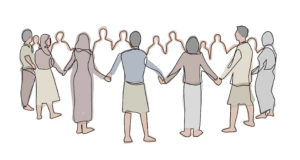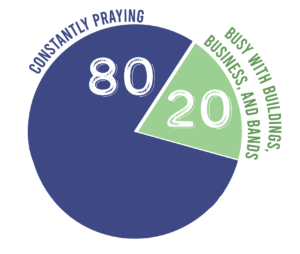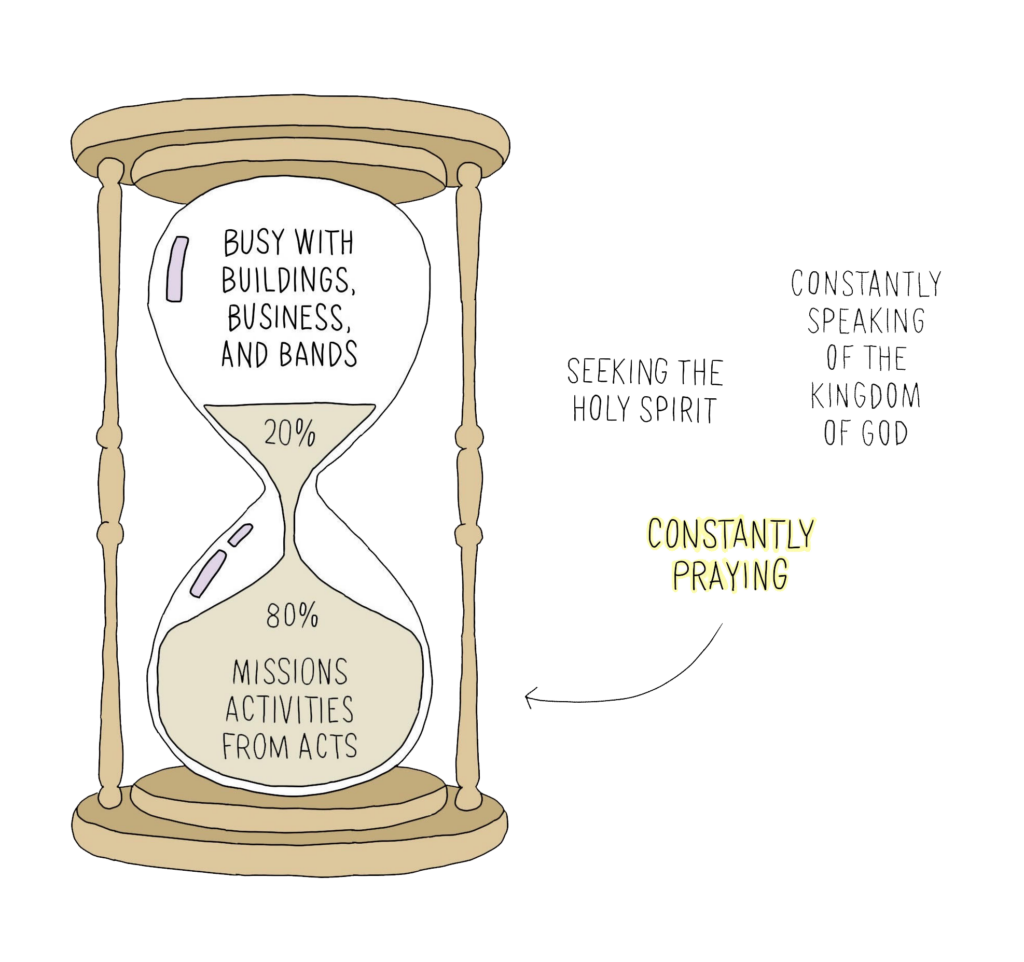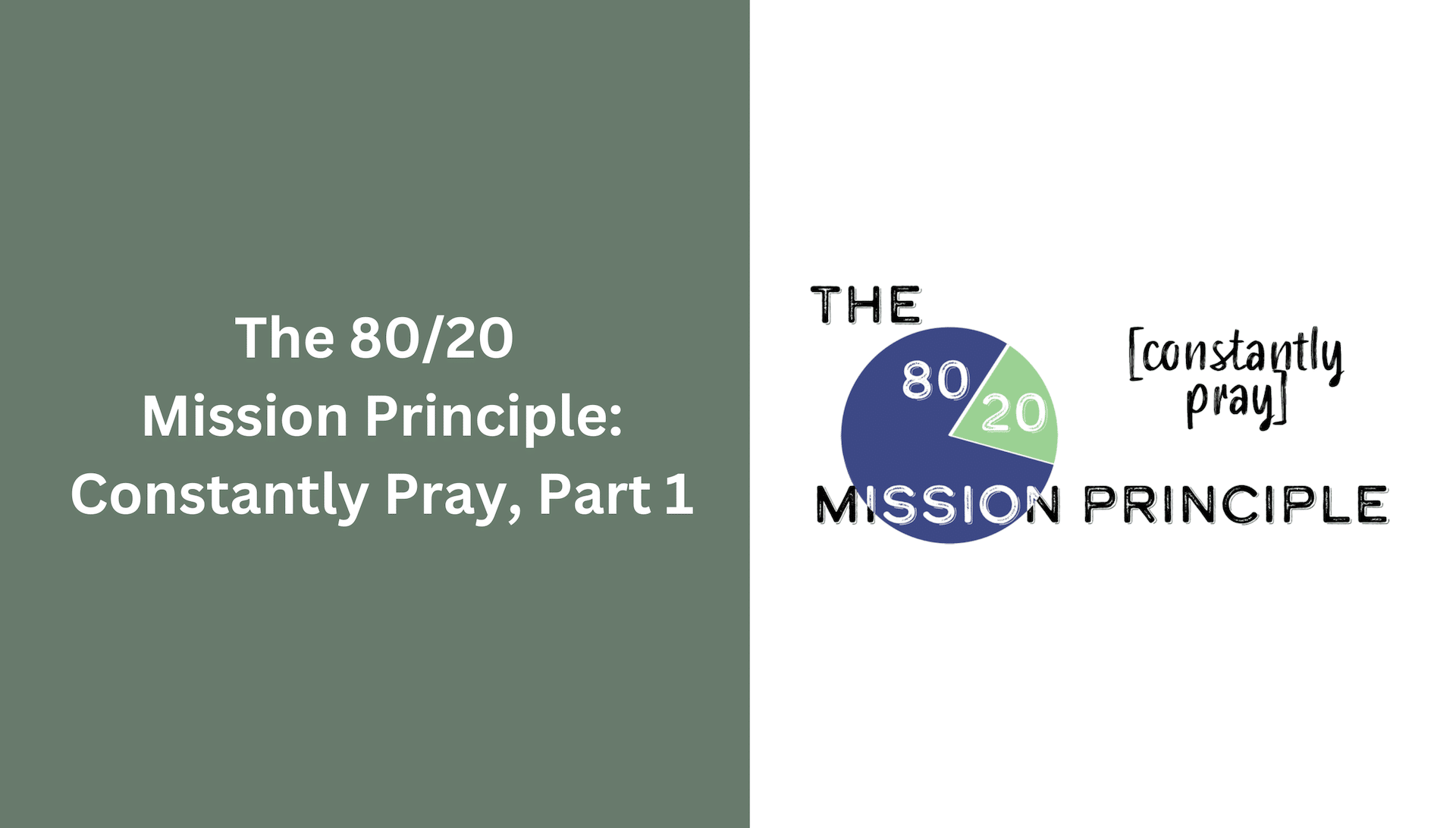
By Jean Johnson
“Back in the city, they went to the room where they were staying—a second-floor room. This whole group devoted themselves to constant prayer with one accord” (Acts 1:13-14, The Voice).
Making prayer part of your 80% is a “no brainer,” but is a constant struggle for us Westerners. The USA has an endless supply of books on prayer because we need so much help (including me). So how do we make prayer our second nature?
For now, let’s explore an example of prayer based on the disciples:
Then the disciples returned to Jerusalem—their short journey from the Mount of Olives was an acceptable Sabbath Day’s walk.
Back in the city, they went to the room where they were staying—a second-floor room. This whole group devoted themselves to constant prayer with one accord: Peter, John, James, Andrew, Philip, Thomas, Bartholomew, Matthew, James (son of Alphaeus), Simon (the Zealot), Judas (son of James), a number of women including Mary (Jesus’ mother), and some of Jesus’ brothers.
As the disciples prayed, Peter stood among the group of about 120 people and made this proposal: . . .
Peter: . . . We need someone to join us as a witness of Jesus’ resurrection.
The group put forward two men: Joseph (who was also known as Barsabbas or Justus) and Matthias.
Disciples: Lord, You know everyone’s heart. Make it clear to us which of these two is Your choice to take on this ministry as Your apostle, replacing Judas who went his own way to his own destination.
Then they drew lots, and the lot fell to Matthias, so he was added to the eleven apostles to reconstitute the twelve (Acts 1:12-26, The Voice).
 From this brief encounter, we learn several things about prayer:
From this brief encounter, we learn several things about prayer:
Pray in one accord – the disciples already had a shared vision
Live and model prayer in community – the 12 disciples included others when they prayed
Strategic wisdom stems from prayer – as the disciples prayed, they were moved to make a big decision about how to repair their team by replacing Judas
God makes it clear – God revealed the answer to their prayer

So here we go! Do we spend 80 percent of our time constantly praying, or are we so busy with buildings, business, and bands that we have little time to pray? What do you need to shift in order to ensure that “constantly praying” is your 80% of the 80/20 rule?
I often hear Western mission workers say that believers among the nations have the corner on prayer compared to us. Why is that? What makes them so apt to pray fervently and constantly? How might we unknowingly actually stifle their gift of prayer with our Westernized mission models? Or how might we fuel it with contextualized mission models?

I’ve been thinking, if I deculturalized my prayer experience (set aside how my worldview has shaped my prayer experience) and chewed on prayer based on the disciples’ experiences in Acts, what would prayer look and sound like? I’m just curious if there were patterns or certain conditions that came into play that we lack or don’t encounter somehow.
So here is a challenge, if you are game . . .
- – Without looking, try to call up as many examples of prayer from the book of Acts as possible. Share those examples with our readers without commentary.
- – Then take mental notes: Consider the environment— what was taking place that led to prayer, and what did prayer look like for them? What might Western missionaries overlook when they are among the nations? (We’ll revisit this later!)
Thanks for joining us for this “80/20 Mission Principle” blog series! Behind? Check out the previous blogs:
The 80/20 Mission Principle: Constantly Speak of the Kingdom of God
The 80/20 Mission Principle: Model Equal Access to our Power Source, the Holy Spirit



